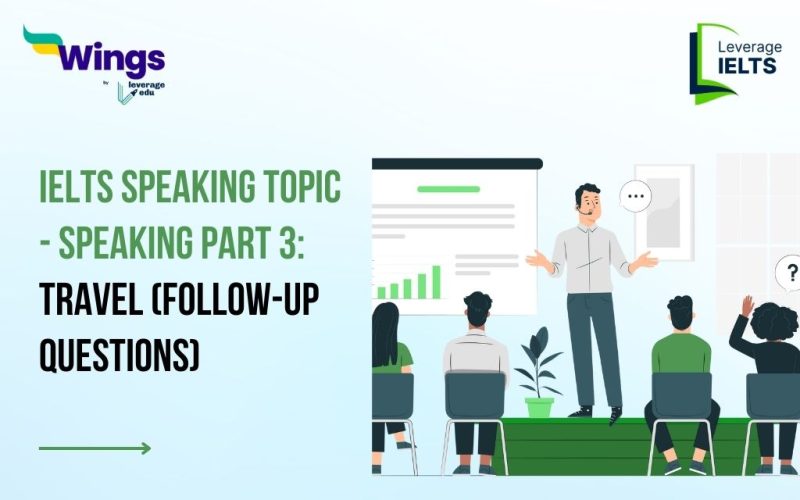Discussion Topics
- Impact of Tourism
- Cultural Exchange
- Travel and Education
Impact of Tourism
Q.1. How does tourism affect local communities?
Ans: Tourism can bring economic benefits to local communities by creating jobs and boosting local businesses. It can lead to the development of infrastructure like roads, public spaces, and services, which can improve the quality of life for residents. However, it can also lead to overcrowding, strain on resources, and loss of cultural authenticity. Overcrowding can put a lot of pressure on Natural resources and Public services. In addition to this, the influx of tourists can sometimes lead to the loss of local traditions and customs as communities cater to tourist preferences.
Q.2. What steps can be taken to minimize the negative impacts of tourism?
Ans: Implementing sustainable tourism practices such as educating tourists about local customs and traditions, and ensuring that tourism development benefits the local community can help minimize negative impacts. Sustainable tourism practices could include limiting the number of tourists in certain areas, promoting off-peak travel, and encouraging environmentally friendly practices among tourists. Moreover, awareness of local customs and traditions can help tourists respect and preserve the local culture.
Cultural Exchange
Q.3. How does travel promote cultural exchange?
Ans: Travel allows people to experience different cultures firsthand. It fosters understanding and appreciation of different ways of life, traditions, and customs. By immersing themselves in a new culture, travelers can learn about different ways of thinking, living, and viewing the world. This can lead to increased tolerance and understanding between cultures.
Q.4. Can cultural exchange through travel lead to cultural homogenization?
Ans: Yes, there’s a risk that global travel could lead to cultures becoming more similar over time. However, preserving and promoting cultural diversity can counteract this. Cultural homogenization could occur as global brands spread and people around the world consume similar media. But by preserving traditional practices, languages, and customs, and by promoting cultural diversity through events like festivals and cultural exchanges, we can maintain the richness and diversity of world cultures.
Travel and Education
Q.5. What can we learn from visiting different places that we can’t learn in a classroom?
Ans: Travel provides experiential learning that a classroom cannot. It teaches us real-world skills, exposes us to different perspectives, and helps us understand global issues on a deeper level. For example, navigating a foreign city can teach problem-solving skills, while interacting with locals can improve communication skills. In addition, experiencing different cultures can broaden our perspectives and challenge our assumptions. Lastly, seeing firsthand the impacts of global issues like climate change or poverty can deepen our understanding and empathy.
Q.6. Should educational institutions incorporate more travel-based learning in their curriculum?
Ans: Certainly, this approach seems like a good idea. Travel-based learning can complement classroom education and provide students with a well-rounded education. Travel experiences can provide real-world context for classroom lessons, making them more engaging and relevant. They can also foster skills like independence, adaptability, and critical thinking that are valuable in today’s globalized world.
Are you preparing for IELTS? Check out this video to improve your speaking skills for the IELTS exam given below👇.
Download the Leverage IELTS App today.


Need help to prepare for IELTS? Check out the best IELTS preparation courses in the market offered in a live training environment by trusted educators in a live training environment. If you want help studying abroad, call 1800-572-130.
 One app for all your study abroad needs
One app for all your study abroad needs
















 45,000+ students realised their study abroad dream with us. Take the first step today.
45,000+ students realised their study abroad dream with us. Take the first step today.